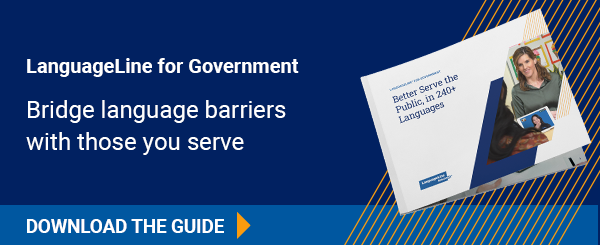
Gabriel moved to Savannah a few years ago, drawn by its sense of community and vibrant culture. But as a native Spanish speaker, navigating city services had often been a frustrating experience. When he needed to report a missed trash pickup or inquire about city programs, language barriers left him feeling unheard and discouraged.
That all changed recently when Savannah launched a new Spanish interpretation service for its 311 help line, powered by LanguageLine’s customized call flow technology. Now, when Gabriel calls for assistance, the process is seamless, efficient, and, most importantly, respectful of his language and culture.
A New Chapter for Multilingual Service
Recently, Gabriel noticed a streetlight had gone out in his neighborhood. Hesitant but hopeful, he dialed Savannah’s 311 line. This time, instead of fumbling through a complicated process, he heard a warm and direct option:
“Para Español, Oprima 2.”
He pressed 2 and was immediately connected to a professional interpreter from LanguageLine. The two then joined a call with an English-speaking 311 call agent. Within moments, Gabriel was explaining the problem in his native language. The interpreter ensured his message was communicated clearly to the city’s customer service representative, and the issue was logged for repair. For the first time, Gabriel felt truly heard.
Behind this seamless experience is a highly efficient system that benefits not just callers like Gabriel but also Savannah’s busy city employees and budget.
Creating Efficiencies for City Operations
Savannah’s 311 help line serves thousands of residents and visitors daily. Prior to implementing LanguageLine’s customized call flow solution, managing calls from limited-English speakers often involved delays, multiple transfers, and additional staff time. These inefficiencies were costly and left callers frustrated.
With LanguageLine’s custom call flows, calls are now streamlined from the very beginning. Spanish-speaking callers are greeted in their language, routed directly to a professional interpreter, and connected to the appropriate city representative without extra steps. This automation eliminates expensive delays and ensures staff spend less time troubleshooting and more time solving problems.
The results speak for themselves:
- Improved Customer Experience: Gabriel and others receive timely, respectful assistance, creating a sense of trust and inclusion.
- Increased Efficiency: City employees no longer waste time deciphering caller needs or searching for language support.
- Cost Savings: Fewer dropped calls and reduced handling time free up resources, making the city’s budget work smarter, not harder.
Customized inbound call solutions like this aren’t just about language access—they’re about making municipal operations more efficient and sustainable while delivering better outcomes for residents.
Why It Matters
Savannah’s example demonstrates the transformative power of customized call flows. By prioritizing efficiency, the city has improved both employee productivity and resident satisfaction. For municipal governments, this is a model worth replicating. With the ability to create seamless, multilingual caller experiences, cities can serve their communities equitably while optimizing their resources.
Every call handled quickly and accurately reflects a commitment to better service and better governance.
Take the Next Step
Does your organization struggle with inefficiencies in managing multilingual calls? LanguageLine’s customizable inbound call solutions can save time, reduce costs, and improve caller satisfaction—all while supporting your team.
Contact us today to learn how we can design a custom call flow that transforms your operations.

